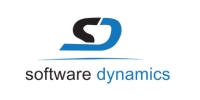The implementation of Enterprise Resource Planning (ERP) systems in Non-Governmental Organizations (NGOs) in Kenya has become a critical success factor for effective operations and service delivery. ERP solutions offer numerous benefits for NGOs, but their implementation, especially lacking a credible ERP implementing partner, can be a daunting task. This article provides insights into best practices and lessons learned for successful NGO ERP implementation in Kenya, with a focus on Microsoft Dynamics 365 Business Central.
Overview of NGO ERP Implementation in Kenya
ERP implementation in NGOs in Kenya involves integrating various functional areas within the organization, including finance, reporting, project management, human resources, procurement, and logistics. The objective is to streamline business processes, enhance operational efficiency, and enable data-driven decision-making. However, the unique challenges faced by NGOs in Kenya, such as resource constraints, regulatory compliance, and operational complexities, require specific considerations for successful ERP implementation.
Brief Introduction to Dynamics 365 Business Central
Microsoft Dynamics 365 Business Central is an ideal solution for NGOs looking for an affordable, customizable, and user-friendly ERP system. The comprehensive ERP solution offers a wide range of features and benefits tailored to NGOs. It is a cloud-based system that provides flexibility, scalability, and efficiency making it an ideal solution for NGOs in Kenya.
Software Dynamics, a leading Microsoft Solutions Partner, specializes in implementing Dynamics 365 Business Central for NGOs, making us the go-to provider for organizations seeking to optimize their operations.
Understanding NGO ERP Implementation in Kenya: Challenges and Opportunities
A. ERP Implementation: An Overview
An ERP is an integrated information management system that manages and coordinates all core business processes, such as finance, human resources, inventory, and supply chain.
Types of ERP Systems:
- On-premise ERP system: This ERP system is implemented, managed, and maintained on-site within an organization’s data centres or servers. On-premise ERP systems offer more control over customization, security, and system performance but require significant upfront investment and ongoing maintenance costs.
- Cloud-based ERP system: A cloud-based ERP system (software-as-a-service [SaaS] ERP) is delivered and accessed through the Internet. The vendor hosts, manages, and maintains the ERP system, providing a scalable and flexible solution that minimizes upfront costs and offers a lower total cost of ownership.
- Hybrid ERP: This type of ERP system combines both on-premise and cloud-based systems, allowing organizations to take advantage of the benefits of each deployment model. Hybrid ERP systems can help organizations manage the migration from on-premise to the cloud while providing the flexibility to balance customization and ease of implementation.
- Two-tier ERP: A two-tier ERP is a deployment model where an organization uses two separate ERP systems. The primary ERP system supports the organization’s core operations as a secondary, less complex ERP system is implemented in subsidiaries, branch offices, or smaller business units to support specific regional, functional, or divisional requirements.
- Box ERPs: This term generally refers to smaller, pre-packaged, and modular ERP systems that cater to specific industries or functional requirements. Box ERPs are often affordable and easy to implement, providing essential core features with minimal configuration and customization needs.
Implementation Steps for NGO ERP Implementation in Kenya:
1. Needs assessment
This is the initial phase, where the organization evaluates its requirements for an ERP system. This includes identifying core business processes, defining goals for the implementation, and understanding the limitations and capabilities of existing systems.
2. Selection
Based on the needs assessment, the organization selects an ERP system that aligns with its business requirements and budget. Factors to consider include the features, functionality, scalability, and vendor support of different ERP solutions.
3. Configuration
After selecting an ERP system, the organization configures it according to its specific business processes and requirements. This includes setting up users, modules, and workflows and customizing the system to fit the organization’s unique needs.
4. Data migration
Once the system is configured, the organization migrates data from its existing systems to the new ERP system. Mapping data from various sources to the correct fields and entities in the new system can be a complex process.
5. Customization
In addition to configuration, the organization might require customization to ensure the ERP system meets its specific needs. Customization can include developing new features, integrating third-party tools, and modifying the user interface.
6. Testing
Before deploying the system, the organization should thoroughly test it to ensure it functions properly and meets business requirements. Testing might include unit testing, integration testing, and user acceptance testing.
7. Training
After testing, the organization trains end-users to effectively use the system before deployment. Training can be delivered through various means, such as in-person sessions, online courses, or documentation.
8. Deployment
After testing and training, the organization deploys the ERP system to its users. This can be a phased approach or a big-bang deployment based on the organization’s needs and resources.
9. Support
After deployment, ongoing support ensures the ERP system continues to meet its needs and address any issues that arise. The vendor, a third-party provider, or in-house resources can provide support.

B. Challenges of ERP Implementation for NGOs
- Limited Budget and Resources: NGOs often operate with tight budgets and limited resources, making the implementation process more challenging. Careful planning and resource allocation are critical.
- Resistance to Change: Employees may resist the new system, fearing job losses/changes, or struggling with the learning curve. Communication, training, and skill development programs can help mitigate this challenge.
- Data Migration and Integration: Merging data from different sources can be complicated, as it requires accurate mapping and conversion. Robust change management strategies can ensure smooth data transition.
- Vendor Selection: Choosing the right ERP vendor is crucial for a successful implementation. NGOs should assess potential partners based on their experience, reputation, costs, and support services.
- Customization vs. Standardization: Balancing customization and standardization is crucial for system compatibility and long-term vendor support.
C. Opportunities of ERP Implementation for NGOs
- Improved Operational Efficiency: ERPs can centralize data, automate processes, and reduce manual intervention, leading to increased productivity and cost savings.
- Better Decision Making: ERP analytics and reporting features enable data-driven decision-making, allowing NGOs to manage finances, resources, and programs effectively.
- Scalability: ERP systems can adapt and grow with an NGO, making them suitable for long-term use and expansion.
- Enhanced Collaboration: Unified data and workflows promote collaboration among different teams and departments, ensuring seamless coordination during projects and programs.
- Compliance and Security: ERP systems simplify compliance and offer advanced security features, safeguarding sensitive data and protecting stakeholder interests.
Key Considerations for an NGO ERP Implementation in Kenya
When it comes to implementing Dynamics 365 Business Central ERP, several key considerations come into play. By examining these factors, NGO leaders can ensure a successful transition to a more efficient and data-driven organizational management approach. Software Dynamics, a leading ERP solution provider in Kenya, can help NGOs meet their unique needs throughout this process.
- Cost-effectiveness: The chosen ERP solution should provide long-term cost savings without compromising quality. Software Dynamics offers affordable and scalable ERP systems tailored to NGOs’ budget requirements.
- User-friendly technology: NGO personnel may have varying levels of technological proficiency. Software Dynamics provides user-friendly ERP solutions with intuitive interfaces to simplify user adoption and training.
- Management support: Internal management buy-in is crucial to ensure a successful implementation. Software Dynamics collaborates with NGO leadership to identify strategic goals, demonstrate the value of the proposed ERP system, and secure necessary resources for a timely and successful deployment.
- Flexibility: Every NGO has unique operational needs. We assess the requirements of NGOs and select or customize the ERP system, ensuring it aligns with the organization’s goals.
- Regulatory compliance: NGOs must adhere to various local and international regulations for financial reporting and donor requirements. Software Dynamics’ ERP solutions are compliant with relevant laws and regulations, ensuring seamless and compliant operations.
Dynamics 365 Business Central Modules for NGOs
Dynamics 365 Business Central offers a diverse set of features designed to empower Non-Governmental Organizations (NGOs) in optimizing their operations, finances, and overall efficiency. Tailored specifically to meet the unique needs of NGOs, these features are instrumental in driving organizational growth, fostering transparency, and supporting impactful initiatives.
Grant Management and Fund Accounting
Dynamics 365 Business Central provides specialized modules for grant management and fund accounting, enabling NGOs to efficiently track and manage funds allocated to specific projects or initiatives. This feature ensures transparency and accountability in financial management, critical for NGOs in maintaining donor trust and compliance with regulatory standards.
Project Management and Resource Planning
With comprehensive project management functionalities, NGOs can effectively plan, execute, and monitor projects, ensuring optimal allocation of resources and timely execution of initiatives. This feature enhances project transparency, accountability, and ultimately, the successful delivery of impactful programs and services.
Donor and Stakeholder Relationship Management
Dynamics 365 Business Central facilitates the cultivation and maintenance of donor and stakeholder relationships by providing robust CRM (Customer Relationship Management) functionalities. NGOs can effectively track interactions, manage communications, and analyze donor engagement, enabling them to foster long-term partnerships and secure crucial funding for their causes.
Compliance and Reporting
The platform offers robust reporting and compliance capabilities, ensuring that NGOs meet stringent regulatory requirements and provide accurate, transparent financial reporting. This feature is essential for maintaining compliance with regulations, demonstrating accountability to stakeholders, and ultimately securing continued funding for critical programs and initiatives.
Human Resource and Volunteer Management
Dynamics 365 Business Central includes features for managing human resources and volunteers and streamlining processes such as recruitment, onboarding, and performance management. This capability enhances the NGO’s ability to efficiently manage staff and volunteer resources, crucial for achieving organizational goals and maximizing social impact.
Incorporating Microsoft Dynamics 365 Business Central’s tailored features into their operations enables NGOs to enhance their financial management, operational efficiency, and stakeholder engagement. This, in turn, empowers NGOs to amplify their impact, extend their reach, and achieve their mission with greater effectiveness. Software Dynamics stands ready to guide NGOs in harnessing the power of Dynamics 365 Business Central, ensuring a seamless and impactful adoption that aligns with the organization’s goals and objectives.
The Benefits of Dynamics 365 Business Central for NGOs
- Improved financial management: With comprehensive financial management tools, organizations can track budgets, manage expenses, and generate financial reports, ensuring compliance with donor requirements.
- Enhanced operational efficiency: Automating business processes saves time and reduces manual errors, allowing NGOs to focus on their core mission.
- Real-time insights: The platform provides real-time data and interactive dashboards through Power BI, enabling better monitoring and decision-making.
- Boosted collaboration: Integration with Office 365 facilitates seamless collaboration among team members, fostering efficient communication.
Best Practices for NGO ERP Implementation in Kenya
To ensure a successful NGO ERP implementation, NGOs in Kenya should follow these best practices:
- Process identification: Determine the core business processes requiring integration in the NGO’s operations, such as finance, human resources, inventory, and supply chain. This will help align the ERP system with the organization’s needs.
- Resistance to change: Address potential employee resistance to change by communicating the reasons for implementation, addressing concerns, and offering skill development programs.
- Project management: Effective project management ensures that the ERP implementation is completed on time, within budget, and aligned with the NGO’s objectives. This includes proper planning, resource management, and risk assessment.
- Data migration and quality: Accurately transferring and validating data from legacy systems to the new ERP solution is essential. Ensuring data quality during the migration process ensures a smooth transition and minimizes disruptions.
- Integration and customization: Configure the ERP system to fit the NGO’s unique requirements and integrate it with other key systems to optimise workflows and minimize manual intervention.
- Training and support: Provide comprehensive training to end-users to maximize the benefits of the new ERP system. Ongoing support ensures that users have access to assistance as they adapt to the new system.
VSF-G enhances accountability and transparency: A Software Dynamics Case Study
Vétérinaires Sans Frontières Germany (VSF Germany), a Berlin-based non-profit organization dedicated to health and well-being in Eastern Africa, implemented Microsoft Dynamics 365 (Dynamics NAV 2019) across its operations in the Horn of Africa.
This strategic move, supported by Software Dynamics, aimed to revolutionize the way VSF Germany operated, emphasizing streamlined processes, enhanced decision-making through data insights, and improved overall efficiency.
Lessons Learned from the NGO ERP Implementation
Stakeholder engagement: Engaging all stakeholders, such as donors, partners, and beneficiaries, is essential for a successful ERP implementation. Software Dynamics assists in facilitating communication with stakeholders, ensuring their concerns are addressed and in alignment with the NGO’s mission and strategic goals is maintained.
Effective project management: Successfully managing and executing an ERP implementation project requires a structured approach. Software Dynamics oversees all aspects of the project, from needs assessment through deployment and support, ensuring that the implementation is completed on time and within budget.
Data migration: Transferring existing data from legacy systems to the new ERP solution can be challenging. Software Dynamics can help NGOs migrate data securely and accurately, maintaining data integrity throughout the process.
Training and customization: Training users in the new ERP system’s features and functionality improves user adoption and minimizes resistance. Software Dynamics provides comprehensive training programs to help users maximize the benefits of the new ERP system. Additionally, customization options cater to specific NGO requirements.
Implementation steps: A systematic and measured implementation process is essential for a successful ERP implementation. Software Dynamics follows a tried-and-tested methodology, including needs assessment, selection, configuration, testing, deployment, and ongoing support. This approach ensures a seamless and efficient transition to the new ERP system.
By carefully considering these key factors and leveraging the expertise of Software Dynamics, Kenyan NGOs can successfully implement a robust ERP system that improves operational efficiency, enables data-driven decision-making, and scales with the organization’s growth.
Key Takeaways of the NGO’s Implementation
Streamlined Processes:
Dynamics 365 Business Central emerged as a crucial tool in streamlining VSF Germany’s complex operations. It tackled inefficiencies head-on, introducing automation to manual tasks and seamlessly integrating diverse functions. The result was an enhancement in operational efficiency, reduced manual effort and increased overall productivity.
Inventory and Financial Management:
The implementation of Dynamics 365 Business Central brought about a shift in how VSF-G managed its resources. The ERP solution provided a comprehensive system for efficient inventory and financial management. This control allowed the organization to track and manage resources with precision, ensuring timely availability in critical areas of operation.
Data-Driven Decisions:
A standout module of Business Central was its robust reporting and analytics capabilities. VSF Germany leveraged these capabilities to transition towards a culture of data-driven decision-making. Real-time insights empowered the organization to assess project performance, identify emerging trends, and allocate resources more effectively, ultimately maximizing impact on the ground.
Flexibility and Customization:
Dynamics 365 Business Central proved to be more than just a one-size-fits-all solution. Its flexibility and customization options perfectly aligned with the dynamic needs of VSF Germany. This adaptability allowed the organization to customise the software to its evolving requirements, ensuring it could scale operations effortlessly and respond to changing circumstances effectively.

The result of Dynamics 365 Business Central ERP Implementation on VSF-G
The implementation of Dynamics 365 Business Central ERP at VSF-G has had a transformative impact on the organization’s operations. This ERP solution, designed to streamline business processes and enhance overall efficiency, has brought about significant positive changes for VSF-G. Here are key aspects of the result of Dynamics 365 Business Central implementation:
Operational Efficiency
VSF Germany witnessed a substantial boost in operational efficiency. By automating workflows and streamlining processes, the organization managed to significantly reduce manual effort. This not only increased productivity but also freed up valuable resources for more impactful work in Eastern Africa.
Enhanced Resource Management
The implementation of Dynamics 365 translated into improved control over inventory and finances. VSF Germany could now track resources with greater accuracy, minimizing waste, and ensuring optimal utilization. This precision in resource management contributed to the organization’s ability to deliver aid more effectively.
Informed Decision-Making
Business Central empowered VSF-G with the tools needed for informed decision-making. The ability to analyze project data in real-time allowed the organization to make strategic decisions based on solid insights, enhancing the overall effectiveness of its initiatives in the region.
Scalability
The adaptability of Business Central played a pivotal role in supporting VSF-G’s growth trajectory. As the organization expanded its operations, the software seamlessly accommodated evolving requirements, providing a scalable solution that facilitated continued impactful work in Eastern Africa.
In summary,
The strategic implementation of Microsoft Dynamics 365 Business Central, coupled with the support of Software Dynamics, positioned Vétérinaires Sans Frontières Germany to thrive in its mission of serving communities and realizing a healthier, sustainable future in Eastern Africa.
Why Software Dynamics is an Ideal Partner for NGO ERP Implementation in Kenya
Software Dynamics’ ERP solution, Microsoft Dynamics 365 Business Central, provides NGOs with the flexibility and scalability needed to streamline their business processes and enhance operational efficiency.
Customization and Configuration for NGO-Specific Needs:
Software Dynamics recognizes that NGOs’ specific needs require tailored solutions. With our team of experienced consultants, we provide customization and configuration services to ensure that Business Central aligns with the NGO’s business processes and operations.
Ensuring User Adoption and Training Best Practices:
We offer training and support services to ensure that NGOs can maximize the benefits of Dynamics 365 Business Central. With a user-friendly interface and customizable features, our ERP solution is designed to ensure smooth user adoption and minimal disruption to NGOs’ operations.
Ongoing Support and Maintenance Considerations:
Software Dynamics offers ongoing support and maintenance services, ensuring that NGOs’ ERP systems are up-to-date, and any technical issues are promptly addressed. This enables NGOs to focus on their core activities and achieve better outcomes for their beneficiaries.
Conclusion
As Kenyan NGOs embark on their ERP implementation journey, it is crucial to consider the entire spectrum of factors influencing successful implementation. Factors such as internal management support, adequate ERP skills, and alignment with the organization’s objectives ensure a smooth and efficient transition to a more data-driven and streamlined operational approach.
By following best practices, including thorough planning, stakeholder engagement, and continuous improvement, NGOs in Kenya can overcome challenges and embrace the transformative power of ERP systems. Moreover, partnering with a capable and experienced solution provider like Software Dynamics can quicken the implementation process and guarantee long-term success.
Software Dynamics is prepared to help Kenyan NGOs harness the advantages of ERP systems, tailoring their solutions to specific operational requirements and ensuring seamless integration with the organization’s existing infrastructure. To begin your ERP implementation journey and revolutionize your NGO’s efficiency, take advantage by Booking a Free Consultation, Calling us, or Emailing us to get in touch.
Together, let’s reimagine the future of your NGO with Software Dynamics. Reach out via email for a free consultation, or give us a call to schedule a conversation at your convenience. Let’s envision the future together.




